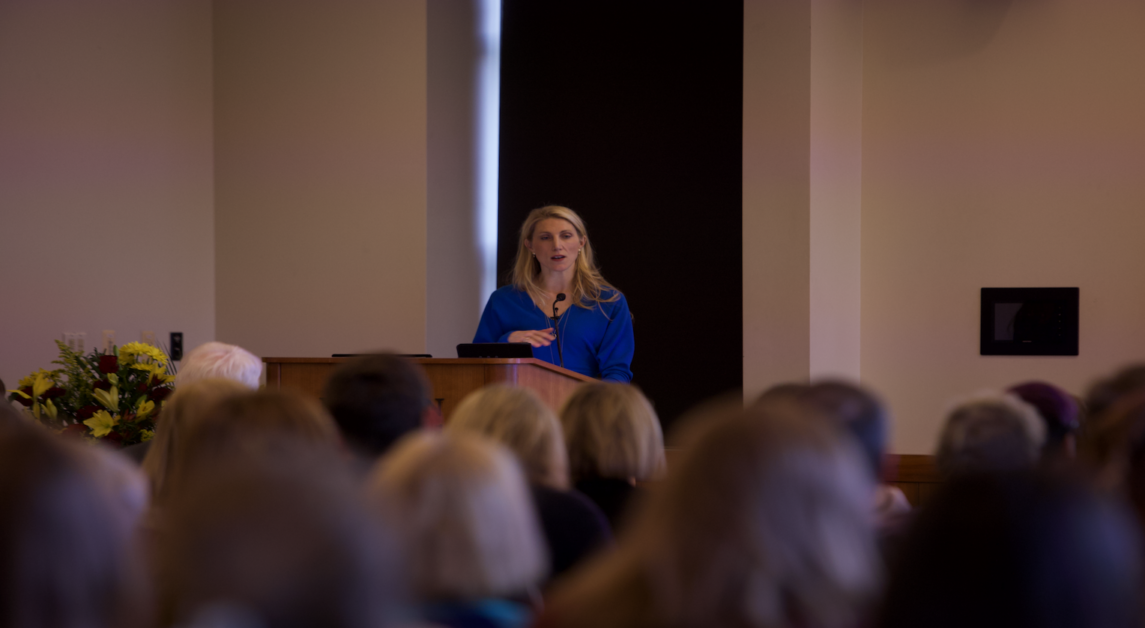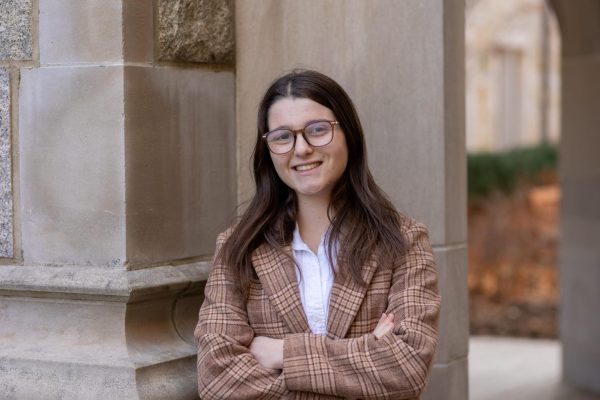Solving climate change–related health complications requires equitable political, social, and health agendas to support the health systems of developing countries, according to Vanessa Kerry.
“The disproportionate effects of COVID on historically marginalized communities around the world clearly showed how unjust social, economic, demographic, and political contexts threaten our well-being and cost the lives of millions,” Kerry said. “As we continue to emerge from this crisis, there is an opportunity for all of us to lean into this understanding.”
Kerry, the co-founder and CEO of Seed Global Health and director of the program in global public policy and social change at Harvard Medical School, delivered a lecture on the solutions to climate change–related health issues on Wednesday in the Yawkey Center as a part of the Connell School of Nursing’s Pinnacle Lecture Series.
To begin, Kerry shared stories from countries she has worked in, including Malawi and Zambia.
“I’d like to share stories specifically from Malawi, a country where Seed Global Health has worked for over 10 years,” Kerry said. “In 2022, Seed was battered by two powerful tropical storms that damaged homes, displaced thousands of people, and sparked the longest and deadliest cholera outbreak on record.”
She told the story of Chancy Banda, a Malawian midwife, who, right after Tropical Cyclone Freddy hit, advocated for the transformation of hospitals into emergency sites for women dealing with pregnancy and birth complications in the wake of the storm.
“We need health professionals, like Chancy, whose knowledge and confident actions in the wake of the storm embody what we need when we say we need climate resilient health systems,” Kerry said.
Kerry then shifted to discuss what the health sector can do to both mitigate and adapt to the effects of climate change. Kerry said that while 5 percent of carbon dioxide emissions are produced by health-related industries, 95 percent of these emissions can be reduced.
“I do want to really stress that there is hope,” Kerry said. “I am a diehard optimist and pragmatist. We know a considerable amount of what we need to do already and the actions that we need to take. The world we want to live in, though, is going to require us all to engage.”
She urged the audience to embrace human health as a foundational building block of society, reframe investments in it as cost effective in the long term, and to spend money ambitiously to strengthen global health care systems, and she cited Seed’s work in Sierra Leone as proof.
The government of Sierra Leone reached out to Seed, Kerry explained, and asked it to help implement a midwifery program to curb its high maternal mortality rates. Since the partnership began, the country has seen a 60 percent decrease in year to year maternal deaths, Kerry said.
“We have trained midwives to be able to engage in the community to provide nursing,” Kerry said. “As a result, after a short year and a half building with partners locally, the country that has had the highest maternal mortality rate in the world, had zero maternal deaths for the first five months of this year.”
Kerry concluded her lecture by demanding accountability from the leaders in the health care industry and government.
“There are no shortcuts to the work we need to do,” Kerry said. “In fact, our attempts to find a faster, more efficient means of delivering health care has often meant that we have ignored the fundamentals.”
Olivia Yang, CSON ’24, attended the event and said she was surprised by the effects that the environment can have on human life.
“The statistics were really compelling,” Yang said. “I did not realize that one in four deaths were caused by preventable environmental causes.”
Yang said it was motivating to hear about the global impact nurses can have outside the hospital.
“Just learning about the ways that nurses can make an impact that is not just streamlining into a hospital is really cool,” Yang said. “It is really important to know how to be a global citizen, and you can learn a lot by listening to other people’s stories.”














